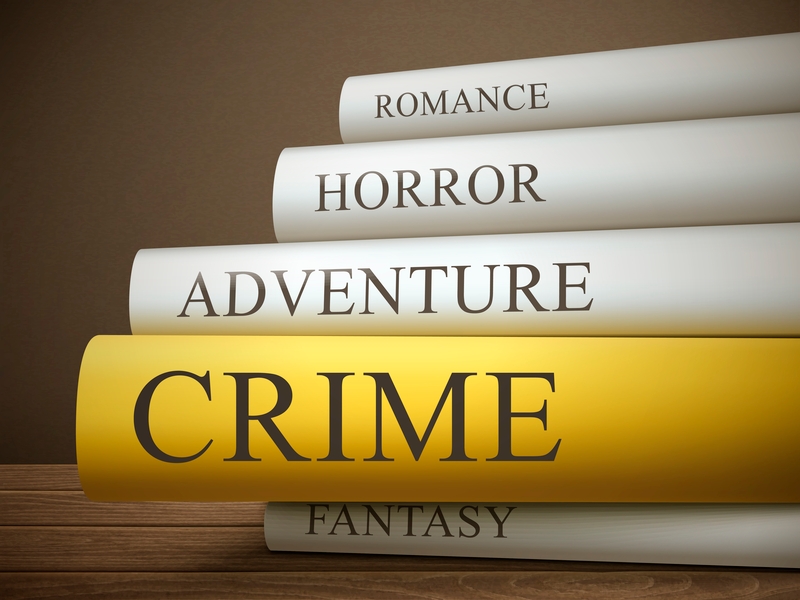Knowing your audience is an important part of marketing and promoting your book. Though you may believe that you don’t write for any particular “type” of person, there is indeed a way to classify your work and it is important that you identify the genre so that you know who your readers are, and how to get your book into their hands.
Before you go blindly charging out into cyberspace or brick and mortar bookstores to promote your latest effort, consider the list below to see if there are any particular people or places that you should be targetting.
Mystery and Suspense
Does your book begin with a crime, or the possibility of a crime, being committed? If so, it likely belongs in the mystery genre, alongside page-turners written by Sir Arthur Conan Doyle, Dashiell Hammett and Agatha Christie.
Romance
There are countless subgenres of romance but the main theme here is romantic love (emotional, physical, spiritual). If your novel’s main plotline is the story of two lovers and the way they feel about each other, then your work belongs here. And that is great news, because romance readers are everywhere and are great supporters of writers – just look at the sales figures for authors such as Nora Roberts, Jackie Collins and Nicholas Sparks!
Horror
Not all horror is supernatural, but every horror novel is meant to make the reader check under the bed before turning out the lights. If your work raises goosebumps through the use of sudden scares, violence and gore, then consider it horror novel akin to many works by Stephen King, Anne Rice and Dean Koontz.
Young Adult
If your novel centres around a person under eighteen “coming of age,” then it is likely a young adult novel. Even authors who don’t set out to write “YA” fiction, such Stephen Chbosky (The Perks of Being a Wallflower), end up categorised as such, as the premise of these novels, though often interesting to older readers, truly speaks to the adolescents who read them. So keep this younger audience in mind when promoting your book, as they have a passionate voice and large market share, meaning they can make or break your career.
Science Fiction
Science fiction writers, like Isaac Asimov, George Orwell and Aldous Huxley, are not only writers but scientific and sociological theorists. If you are absorbed by current socio-political and technological issues and write about the extremes to which they could be taken, you are likely a writer of the sci-fi persuasion.
Fantasy
Many people confuse science fiction and fantasy, but the key difference here is that science fiction writers take what currently exists in our world and imagine the future implications and possibilities, while fantasy writers create their own worlds with entirely different species and laws of science. If your writing involves made up beings and magical properties, such as the work of J.R.R. Tolkien and J.K. Rowling (don’t worry, going only by your initials is not a requirement), then the fantasy genre is the one for you.
Comedy
Any work can (and should!) have comedic elements. Humour is a part of life and a story completely without it would seem one-dimensional. However, if your novel was written purely to make the reader laugh out loud, it may just be a comedy, through and through. Many comedies are written in the first person and act as fictionalised autobiographers of the main character, such as the Bridget Jones series by Helen Fielding. Dark comedies are also quite popular and exist to lampoon or satirise many of the worst parts of our society, as exemplified by the works of Joseph Heller and Bret Easton Ellis.
Literary Fiction
The “catchall” genre, literary fiction is somewhat contested as to whether it truly is in its own category. If you are having trouble picturing your novel being sold under any of the above headings, though, the more general world of literary fiction could be the perfect place for you to start.
Of course, you can always dive even deeper into the genres listed above and seek out audiences truly committed to secret spy mysteries or tragic romances. But, by beginning with the themes listed above, you will have a clear direction of where and how you should begin to promote your work, and yourself as an author!
About Paperblanks®: At Paperblanks®, we believe that art should have a place in all aspects of life. That’s why we follow the artist’s way in everything we do – creating, crafting and releasing designs we believe have the power to touch people. For more about Paperblanks®, go to our website at paperblanks.com.







